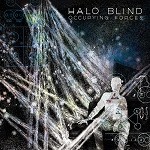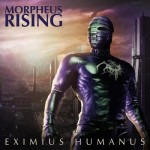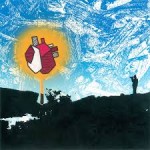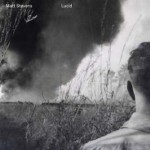This very perceptive piece on the economics of music streaming by Anil Prasad, The Finger’s on the Self-Destruct Button includes this very illuminating quote from Matt Stevens.
“Streaming makes it very difficult for cult bands who sell 1,000 copies of each release,†the noted British guitarist and composer Matt Stevens told me. “If 1,000 people stream an album 10 times, we probably make a few pennies versus 1,000 download sales which create a model that will pay for modest recording expenses. At present, with downloads, it’s roughly sustainable, but not profitable. If we move to streaming and that income disappears completely, we’re in serious trouble.â€
That’s a potentially very bleak prospect for much of the music that features heavily on this blog. Anil Prasad also believes the current streaming model of Spotify et al is unsustainable and will eventually collapse. What will that collapse leave in it’s wake?
It’s easy to be pessimistic, though it’s also important to remember the the old pre-internet music industry wasn’t perfect either; the vast majority of bands never got signed and never got to make a record, and most of those that did had to sign away the rights to their own music in order to be able to record and release it.
In many ways it’s a shame that hybrid streaming and download sites like mFlow failed, and that last.fm was forced to shut down their streaming radio stations. Both sites had great value for music discovery, and both drove actual music purchases. But both ended as internet roadkill under the wheels of Spotify.
Streaming in its present for isn’t going to provide a worthwhile income stream for anything other than the most mass-market and commercial end of the market that can benefit from scale. It’s easy to imagine a world divided into a small nunber of heavily hyped stars and everyone else relying on crowdfunding for much of their revenue.
Quite what the music landscape of a decade’s time might look like is anyone’s guess. All that can be said is that we live in interesting times.

 Halo Blind is the project that used to be called Parade, led by York-based singer-songwriter, multi-instrumentalist and producer Chris Johnson, currently part of Mostly Autumn. The long-awaited follow-up to 2009′s The Fabric is a little less eclectically-varied than it’s predecessor, but hangs together far more strongly as a coherent album. The blend of indie-rock guitars and progressive rock textures combined with strong songwriting ought to have a wide crossover appeal.
Halo Blind is the project that used to be called Parade, led by York-based singer-songwriter, multi-instrumentalist and producer Chris Johnson, currently part of Mostly Autumn. The long-awaited follow-up to 2009′s The Fabric is a little less eclectically-varied than it’s predecessor, but hangs together far more strongly as a coherent album. The blend of indie-rock guitars and progressive rock textures combined with strong songwriting ought to have a wide crossover appeal. The neo-prog veterans have never been prolific, but never disappoint. This double album sees them not afraid to experiment, with an abrasive industrial-metal edge alongside the more traditional neo-prog sounds. There is still plenty of what ought to be expected from any IQ album; lengthy kaleidoscopic songs, dark and melodramatic vocals and climactic guitar and keyboard solos.
The neo-prog veterans have never been prolific, but never disappoint. This double album sees them not afraid to experiment, with an abrasive industrial-metal edge alongside the more traditional neo-prog sounds. There is still plenty of what ought to be expected from any IQ album; lengthy kaleidoscopic songs, dark and melodramatic vocals and climactic guitar and keyboard solos. The York twin-guitar rockers raise their game significantly with their second album. It’s an old-school hard rock album recalling the early days of Judas Priest and Iron Maiden, with a focus on songwriting and melody. Si Wright comes into his own as a lead singer with material written to take full advantage of his vocal range.
The York twin-guitar rockers raise their game significantly with their second album. It’s an old-school hard rock album recalling the early days of Judas Priest and Iron Maiden, with a focus on songwriting and melody. Si Wright comes into his own as a lead singer with material written to take full advantage of his vocal range. The veteran former Led Zeppelin frontman returns with his strongest record for many years. It’s a mix of English rock and folk with African and Middle Eastern sounds, and even the occasional blast of hard rock guitar, but there’s a fire to it that’s been missing from his last few records. It’s still a long way from the swaggering blues-rock of his early career, but like much of his recent output it’s music that suits an artist in his 60s rather than his 20s.
The veteran former Led Zeppelin frontman returns with his strongest record for many years. It’s a mix of English rock and folk with African and Middle Eastern sounds, and even the occasional blast of hard rock guitar, but there’s a fire to it that’s been missing from his last few records. It’s still a long way from the swaggering blues-rock of his early career, but like much of his recent output it’s music that suits an artist in his 60s rather than his 20s. It’s jazz, Jim, but not as we know it. Twin saxophones meet electronic soundscapes, with shades of Miles Davis meets Pink Floyd. One moment it’s melodic and atmospheric, the next it’s squawking cacophony. It can be a challenging listen at times; this is a record than imports elements of rock into jazz, but takes things in an altogether different direction from jazz-fusion.
It’s jazz, Jim, but not as we know it. Twin saxophones meet electronic soundscapes, with shades of Miles Davis meets Pink Floyd. One moment it’s melodic and atmospheric, the next it’s squawking cacophony. It can be a challenging listen at times; this is a record than imports elements of rock into jazz, but takes things in an altogether different direction from jazz-fusion. Having taken his acoustic looping guitar thing as far as could go, Matt has made something far more eclectic, combining his loves of post-punk, progressive rock and extreme metal. While there are some delicate acoustic numbers, much of the album is electric, with a full band and and interesting array of guest performers. Proof that you can make an all-instrumental guitar album without it becoming a vehicle for endless soloing.
Having taken his acoustic looping guitar thing as far as could go, Matt has made something far more eclectic, combining his loves of post-punk, progressive rock and extreme metal. While there are some delicate acoustic numbers, much of the album is electric, with a full band and and interesting array of guest performers. Proof that you can make an all-instrumental guitar album without it becoming a vehicle for endless soloing. The new project from former Breathing Space and Stolen Earth bassist Paul Teasdale is a very interesting blend of progressive rock atmospherics and Britpop-style songwriting. There are strong guest vocal performances by Aleksandra Koziol and Joanne Wallis, but Paul handles the majority of the lead vocals himself, and the soaring melodies prove him to be a fine vocalist as well as a songwriter.
The new project from former Breathing Space and Stolen Earth bassist Paul Teasdale is a very interesting blend of progressive rock atmospherics and Britpop-style songwriting. There are strong guest vocal performances by Aleksandra Koziol and Joanne Wallis, but Paul handles the majority of the lead vocals himself, and the soaring melodies prove him to be a fine vocalist as well as a songwriter.